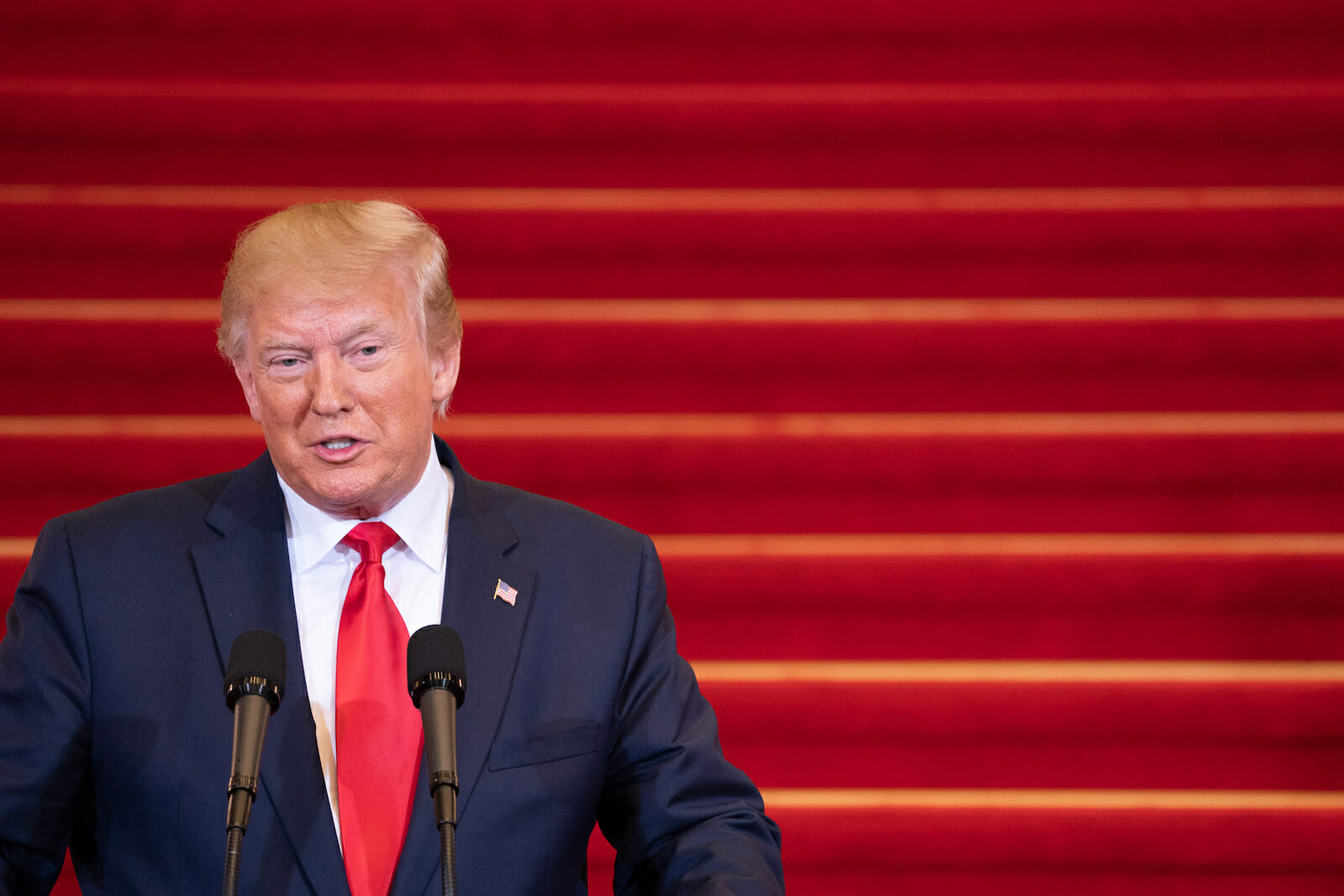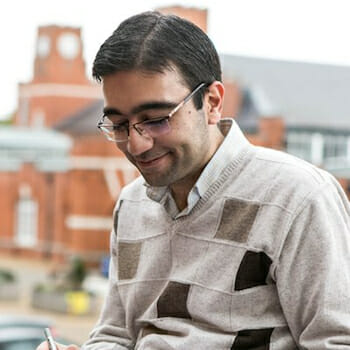
Trump’s Hawkish Foreign Policy is Decimating Iran’s Reform Movement
When Iran’s incumbent President Hassan Rouhani was running for office in 2013, his main campaign promise was “constructive engagement” with the world. As a pragmatic centrist politician with a background in international diplomacy, Rouhani was given a mandate by the majority of Iranians to salvage the country’s ailing economy and draw an end to the corrosive dispute over Tehran’s nuclear program.
Rouhani started by getting the green light for direct negotiations with the United States from the Supreme Leader Ali Khamenei, who has the final say on almost everything within Iran’s power hierarchy. Negotiations started and after almost two years of intensive talks, Iran and six world powers achieved a historic agreement that came to be known as the Joint Comprehensive Plan of Action, or the Iran nuclear deal.
The accord provided solid assurances that Iran would never work towards developing or acquiring nuclear weapons. It subjected Iran’s nuclear facilities to a thorough monitoring, inspection and verification regime by the International Atomic Energy Agency and Iranians complied with it in good faith because the economic incentives of the JCPOA were important to them. They wanted to end the economic isolation and detachment from the international community and ensure robust foreign investment in different sectors of the country’s economy.
The credit for the JCPOA, which was lauded by world leaders, diplomats, national security experts, academics, and the media would go to those who negotiated it, and in Iran, it was the reform movement that was appreciated because of investing in this major diplomatic effort that was the fruit of prudence and realism in foreign policy decision-making and willingness to make meaningful compromises.
President Donald Trump’s withdrawal from the Iran deal in May 2018 was a fundamentally miscalculated and counterproductive decision that rendered the outcome of two years of committed and meaningful diplomacy null and void and escalated tensions in an already boiling Middle East.
However, aside from its different regional repercussions, the withdrawal of the United States from the Iran deal had grave implications for Iranian society, as well. The reinstatement of sanctions against Iran after Trump’s pullout from the JCPOA was a big gift for Iran’s hardliners who never cease to advocate that negotiations with the United States are meaningless and unhelpful. Although the JCPOA was a treaty to which the Iranian government officially and voluntarily subscribed, they had never concealed their dismay and anger on the grounds that the deal had compromised the country’s nuclear might in return for no significant concessions from the other parties.
In parliament, Friday prayers sermons, state-sanctioned rallies and demonstrations, state TV, news agencies and newspapers and online media, Iranian hardliners promoted vicious propaganda against the Iran deal and implied that the chief negotiator, Foreign Minister Javad Zarif, was a traitor.
Now that the United States is not a party to the JCPOA anymore, these hardliners, including members of the paramilitary organizations, can claim that they were right about the United States not being a trustworthy interlocutor and that any future talks with Washington will be similarly pointless.
Iran’s conservatives and hardliners do not openly welcome the snapback of US sanctions. However, they certainly feel empowered by seeing an enfeebled Rouhani administration that is unable to handle the national economy and finds itself incapable of putting a lid on skyrocketing consumer goods’ prices and unmanageable exchange market triggered by the unprecedented depreciation of the national currency, the rial, following the imposition of wide-ranging US sanctions.
They will also unite for a sweeping victory in the upcoming parliamentary elections, which some reformists are considering boycotting, and ultimately the 2021 presidential elections. Iran’s former reformist President Mohammad Khatami, who is considered to be the main leader of the reform movement, has voiced skepticism about the willingness of Iranian people to take part in the upcoming elections, noting that with the difficulties the country is wrestling with, it’s hard to encourage people to go to polls.
The JCPOA is not dead yet, but it’s moribund, and the Iranian people blame the US President Donald Trump and President Hassan Rouhani equally for this failure.
Iran’s Supreme Leader has vocally denied any fresh talks with the United States and rejected the offer of mediation by the visiting Japanese Prime Minister Shinzo Abe, who, while in Tehran told him that he was carrying a message from President Donald Trump to Iranian authorities. This means President Rouhani will be unable to set up new negotiations with Washington unless Khamenei changes his mind, which is extremely unlikely, and therefore Rouhani should pretend that he is likewise opposed to talks to the United States under current circumstances.
All of these developments mean the reform movement, which advocates personal freedoms, civil liberties and dialogue with the international community will be undermined and the hardliners will have the upper hand in Iran’s political landscape, and this is predominantly the by-product of President Donald Trump’s hawkish foreign policy and his ignorance about the dynamics of Iranian society.
By imposing a blanket ban on Iran’s oil exports with the aim of driving them to zero, ramping up economic pressure on Iran and threatening different world countries with secondary sanctions if they do business with Iran, President Trump and his administration are suffocating Iran’s civil society and disappointing the proponents of diplomacy and détente.
After 2021, when Iranians go to polls to elect a new president, the country might be fully in the hands of ultra-conservatives and hardliners, and the simple translation of this is that Iran’s nuclear controversy, which had almost come to an end with the signing of the JCPOA, will continue to be an intractable dilemma for the world for a longer period than one might think.
